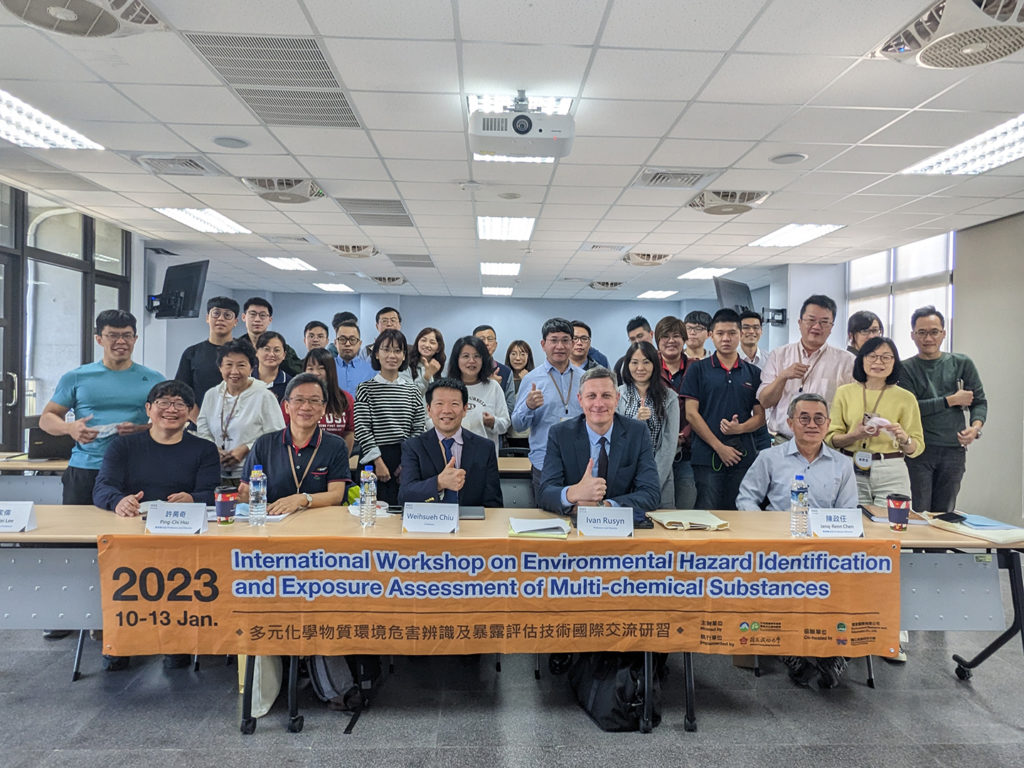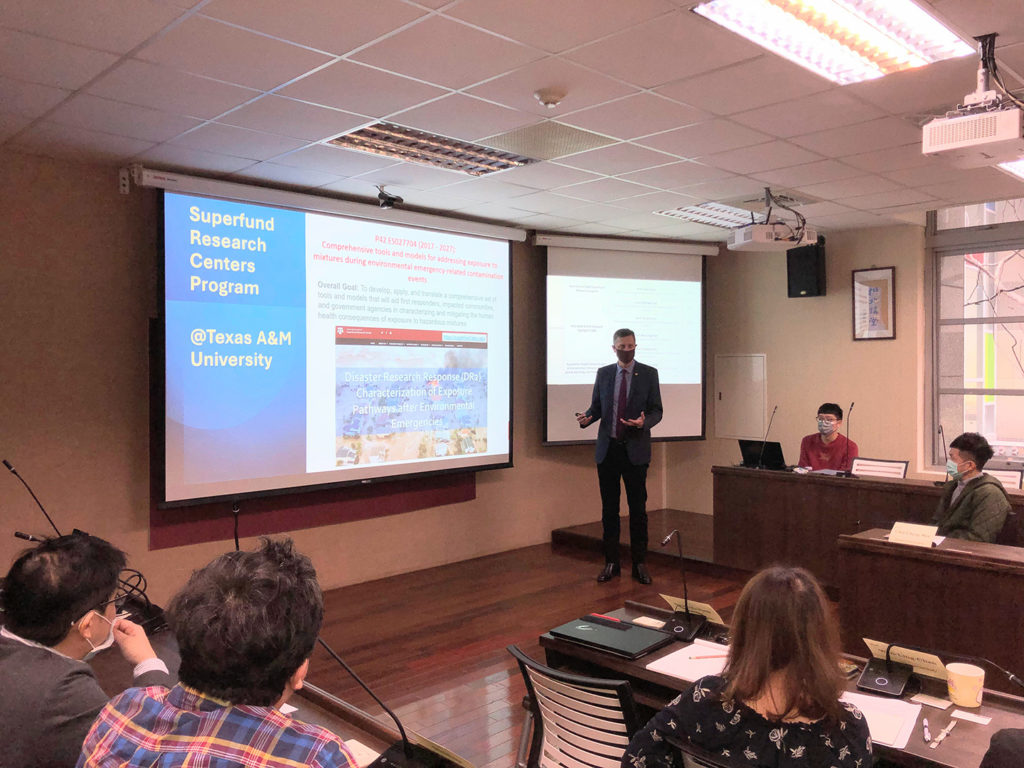Strengthening Global Partnerships: Texas A&M Faculty Conduct Training Workshops In Taiwan
Story by Megan Myers, VMBS Communications

Four faculty members of the Texas A&M Superfund Research Center conducted a series of lecture-based and hands-on training workshops in Taiwan, sharing their knowledge and expertise in disaster research response (DR2).
From January 9-13, Drs. Ivan Rusyn and Weihsueh Chiu from the Texas A&M School of Veterinary Medicine & Biomedical Sciences (VMBS), along with Drs. Thomas McDonald and Garett Sansom from the Texas A&M School of Public Health, taught more than 50 hours of material in three locations across Taiwan.
The teams visited National Taiwan University in Taipei, National Cheng Kung University in Tainan, and National University of Science and Technology in Kaohsiung to train faculty and students, as well as employees and contractors for the Toxic and Chemical Substances Bureau of Taiwan’s Environmental Protection Administration.
“We are delighted to share our collective expertise from DR2 research in the Superfund Research Center,” said Rusyn, a University Professor in the VMBS’ Department of Veterinary Physiology & Pharmacology and chair of the Interdisciplinary Faculty of Toxicology at Texas A&M University. “This trip was very enlightening, as we not only had the opportunity to see how our research solutions can be applied globally but also to learn from our partners in Taiwan. This collaboration will sustain through future mutual exchanges, and we are looking forward to working together to find ways to combat effects of climate change and natural disasters.”

The trainings covered topics such as new experimental approaches to fulfilling regulatory requirements for mixtures and complex substances, rapid risk assessment in disaster scenarios, environmental sampling, and human studies in environmental justice communities (communities predominantly comprising persons socially and/or economically disadvantaged who are subjected to a disproportionate burden of environmental hazards).
“Taiwan has many similarities with urban areas in the U.S., including the Houston area, in that there are many petrochemical and other industrial facilities situated next to fence-line communities, along with a potential for increased environmental hazards due to both natural and human-made disasters,” Chiu said. “We were happy to share our experiences addressing these complex issues with colleagues who face similar challenges.”
The Superfund team also presented case studies on their response to Hurricane Harvey in 2017, Hurricane Florence in 2018, and Houston’s ITC fires in 2019.
###
For more information about the Texas A&M School of Veterinary Medicine & Biomedical Sciences, please visit our website at vetmed.tamu.edu or join us on Facebook, Instagram, and Twitter.
Contact Information: Jennifer Gauntt, Director of VMBS Communications, Texas A&M School of Veterinary Medicine & Biomedical Sciences, jgauntt@cvm.tamu.edu, 979-862-4216


